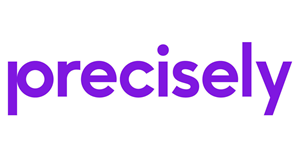The AI Revolution: A New Era of Leadership and Innovation
March 27, 2025, 4:29 am

Location: United States, California, Palo Alto
Employees: 1001-5000
Founded date: 2008
Total raised: $1.04B

Location: United States, Texas, Austin
Employees: 51-200
Founded date: 2013
Total raised: $3M

Location: United States, California, San Ramon
Employees: 11-50
Founded date: 2017
Total raised: $11M
The landscape of artificial intelligence (AI) is evolving at a dizzying pace. Companies are racing to harness its power, and leadership changes are shaping the future of this technology. Recent appointments and acquisitions highlight a transformative moment in the industry. This article explores the implications of these shifts, focusing on key players like Cloudera, Mechanized AI, and Siemens, and how they are positioning themselves for success in the AI-driven world.
Cloudera recently appointed Leo Brunnick as its Chief Product Officer. With over 30 years of experience, Brunnick is set to steer the company through its next phase of AI and data innovation. His previous roles, including Chief Operating Officer at Naviga, have equipped him with the skills to lead high-performing teams. Brunnick’s vision aligns with Cloudera’s commitment to providing a hybrid platform that combines on-premises and cloud-native solutions. This flexibility is crucial for enterprises seeking to deploy AI solutions effectively. Cloudera's unique position as a hybrid data platform provider allows it to cater to diverse customer needs, making it a formidable player in the market.
Meanwhile, Mechanized AI has made headlines with the appointment of Colin VanderSmith as Chief Revenue Officer. VanderSmith brings two decades of experience in cloud and technology, having held senior roles at major companies like Google and Microsoft. His focus will be on driving revenue growth and optimizing customer success. This leadership change comes as Mechanized AI seeks to solidify its position in the enterprise AI space. The company is poised to leverage VanderSmith’s expertise to expand its market reach and enhance its offerings. The synergy between VanderSmith and Ian Easton, who transitions to Chief Strategy Officer, sets the stage for a robust strategy that emphasizes innovation and customer-centric solutions.
In another significant move, Siemens has acquired Altair Engineering, a leader in industrial simulation and analysis software. This $10 billion acquisition enhances Siemens’ capabilities in simulation and AI, positioning it as a leader in the industrial software market. The integration of Altair’s technology into Siemens’ Xcelerator platform will create a comprehensive AI-powered portfolio. This acquisition is a cornerstone of Siemens’ ONE Tech Company program, aimed at driving efficiency and sustainability across industries. By combining resources, Siemens and Altair can accelerate product development and improve time-to-market for complex industrial solutions.
The AI landscape is not just about leadership changes; it’s also about innovation in products and services. Tetrate has launched the Agent Operations Director, a tool designed to optimize the return on investment (ROI) from generative AI initiatives. This platform provides real-time insights and intelligent control over large language model (LLM) traffic, enhancing machine learning infrastructure efficiency. As organizations invest heavily in AI, the need for effective cost management and risk governance becomes paramount. Tetrate’s solution addresses these challenges, allowing enterprises to maximize their AI investments while minimizing operational risks.
Deloitte is also making strides in the AI space with its Global AI Simulation Center of Excellence. This initiative aims to create real-time, seamless business insights through advanced simulations and scenario modeling. By leveraging generative AI, Deloitte seeks to revolutionize how clients approach strategy development. The center will enable organizations to visualize multiple scenarios, facilitating informed decision-making. This innovative approach underscores the growing importance of AI in strategic planning and risk management.
Rackspace Technology has introduced Rackspace AI Business, a comprehensive platform designed to optimize enterprise AI workloads. This fully managed private AI solution combines cutting-edge capabilities with enterprise-grade security. As businesses face challenges in deploying and scaling AI initiatives, Rackspace’s platform offers a flexible and high-performance environment. By addressing the technical barriers to AI adoption, Rackspace empowers organizations to focus on extracting value from their AI investments.
In the industrial sector, TDengine has launched TDgpt, an AI agent for advanced time-series analytics. This tool makes AI accessible to industrial enterprises, enabling them to perform analytics such as forecasting and anomaly detection without significant IT investment. By simplifying the integration of AI into traditional industries, TDgpt bridges the gap between advanced technology and practical application.
The partnership between SAI360 and Signal AI further exemplifies the trend of integrating AI into risk management. By combining external risk data with SAI360’s governance platform, organizations can enhance their risk management strategies. This collaboration allows businesses to monitor emerging threats in real-time, enabling proactive decision-making.
Finally, Rezolve Ai’s acquisition of GroupBy marks a significant milestone in AI-powered commerce. This strategic move is expected to enhance Rezolve Ai’s capabilities in digital engagement and product discovery. By integrating GroupBy’s technology, Rezolve Ai aims to redefine the future of commerce, providing seamless and personalized experiences for consumers.
In conclusion, the AI revolution is reshaping industries and redefining leadership. Companies are making strategic moves to position themselves for success in this rapidly evolving landscape. From leadership appointments to innovative product launches, the focus is on harnessing AI’s potential to drive growth and efficiency. As organizations navigate this transformative era, the ability to adapt and innovate will be key to thriving in the AI-driven future. The stage is set for a new wave of technological advancement, and those who embrace it will lead the charge into a promising tomorrow.
Cloudera recently appointed Leo Brunnick as its Chief Product Officer. With over 30 years of experience, Brunnick is set to steer the company through its next phase of AI and data innovation. His previous roles, including Chief Operating Officer at Naviga, have equipped him with the skills to lead high-performing teams. Brunnick’s vision aligns with Cloudera’s commitment to providing a hybrid platform that combines on-premises and cloud-native solutions. This flexibility is crucial for enterprises seeking to deploy AI solutions effectively. Cloudera's unique position as a hybrid data platform provider allows it to cater to diverse customer needs, making it a formidable player in the market.
Meanwhile, Mechanized AI has made headlines with the appointment of Colin VanderSmith as Chief Revenue Officer. VanderSmith brings two decades of experience in cloud and technology, having held senior roles at major companies like Google and Microsoft. His focus will be on driving revenue growth and optimizing customer success. This leadership change comes as Mechanized AI seeks to solidify its position in the enterprise AI space. The company is poised to leverage VanderSmith’s expertise to expand its market reach and enhance its offerings. The synergy between VanderSmith and Ian Easton, who transitions to Chief Strategy Officer, sets the stage for a robust strategy that emphasizes innovation and customer-centric solutions.
In another significant move, Siemens has acquired Altair Engineering, a leader in industrial simulation and analysis software. This $10 billion acquisition enhances Siemens’ capabilities in simulation and AI, positioning it as a leader in the industrial software market. The integration of Altair’s technology into Siemens’ Xcelerator platform will create a comprehensive AI-powered portfolio. This acquisition is a cornerstone of Siemens’ ONE Tech Company program, aimed at driving efficiency and sustainability across industries. By combining resources, Siemens and Altair can accelerate product development and improve time-to-market for complex industrial solutions.
The AI landscape is not just about leadership changes; it’s also about innovation in products and services. Tetrate has launched the Agent Operations Director, a tool designed to optimize the return on investment (ROI) from generative AI initiatives. This platform provides real-time insights and intelligent control over large language model (LLM) traffic, enhancing machine learning infrastructure efficiency. As organizations invest heavily in AI, the need for effective cost management and risk governance becomes paramount. Tetrate’s solution addresses these challenges, allowing enterprises to maximize their AI investments while minimizing operational risks.
Deloitte is also making strides in the AI space with its Global AI Simulation Center of Excellence. This initiative aims to create real-time, seamless business insights through advanced simulations and scenario modeling. By leveraging generative AI, Deloitte seeks to revolutionize how clients approach strategy development. The center will enable organizations to visualize multiple scenarios, facilitating informed decision-making. This innovative approach underscores the growing importance of AI in strategic planning and risk management.
Rackspace Technology has introduced Rackspace AI Business, a comprehensive platform designed to optimize enterprise AI workloads. This fully managed private AI solution combines cutting-edge capabilities with enterprise-grade security. As businesses face challenges in deploying and scaling AI initiatives, Rackspace’s platform offers a flexible and high-performance environment. By addressing the technical barriers to AI adoption, Rackspace empowers organizations to focus on extracting value from their AI investments.
In the industrial sector, TDengine has launched TDgpt, an AI agent for advanced time-series analytics. This tool makes AI accessible to industrial enterprises, enabling them to perform analytics such as forecasting and anomaly detection without significant IT investment. By simplifying the integration of AI into traditional industries, TDgpt bridges the gap between advanced technology and practical application.
The partnership between SAI360 and Signal AI further exemplifies the trend of integrating AI into risk management. By combining external risk data with SAI360’s governance platform, organizations can enhance their risk management strategies. This collaboration allows businesses to monitor emerging threats in real-time, enabling proactive decision-making.
Finally, Rezolve Ai’s acquisition of GroupBy marks a significant milestone in AI-powered commerce. This strategic move is expected to enhance Rezolve Ai’s capabilities in digital engagement and product discovery. By integrating GroupBy’s technology, Rezolve Ai aims to redefine the future of commerce, providing seamless and personalized experiences for consumers.
In conclusion, the AI revolution is reshaping industries and redefining leadership. Companies are making strategic moves to position themselves for success in this rapidly evolving landscape. From leadership appointments to innovative product launches, the focus is on harnessing AI’s potential to drive growth and efficiency. As organizations navigate this transformative era, the ability to adapt and innovate will be key to thriving in the AI-driven future. The stage is set for a new wave of technological advancement, and those who embrace it will lead the charge into a promising tomorrow.
